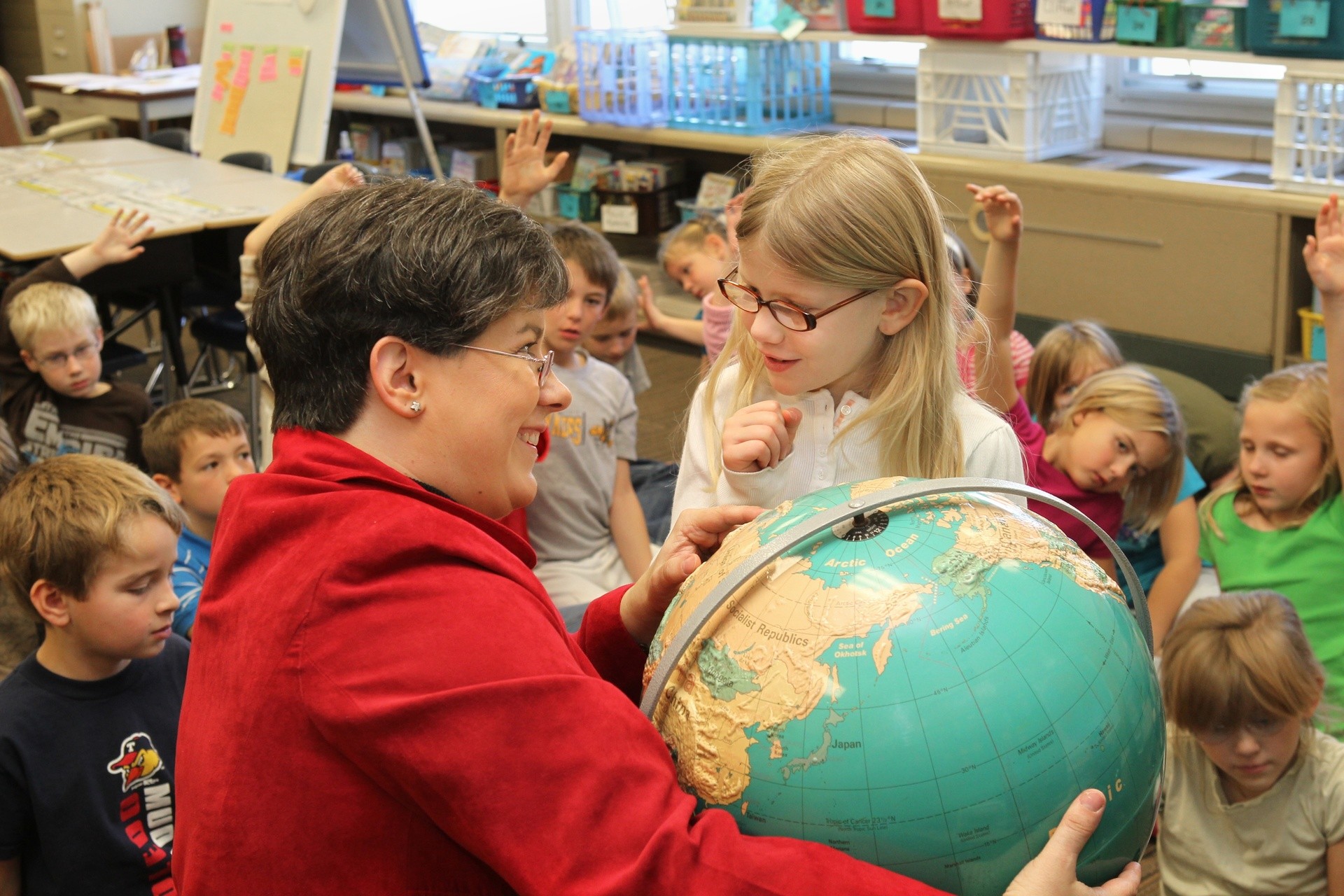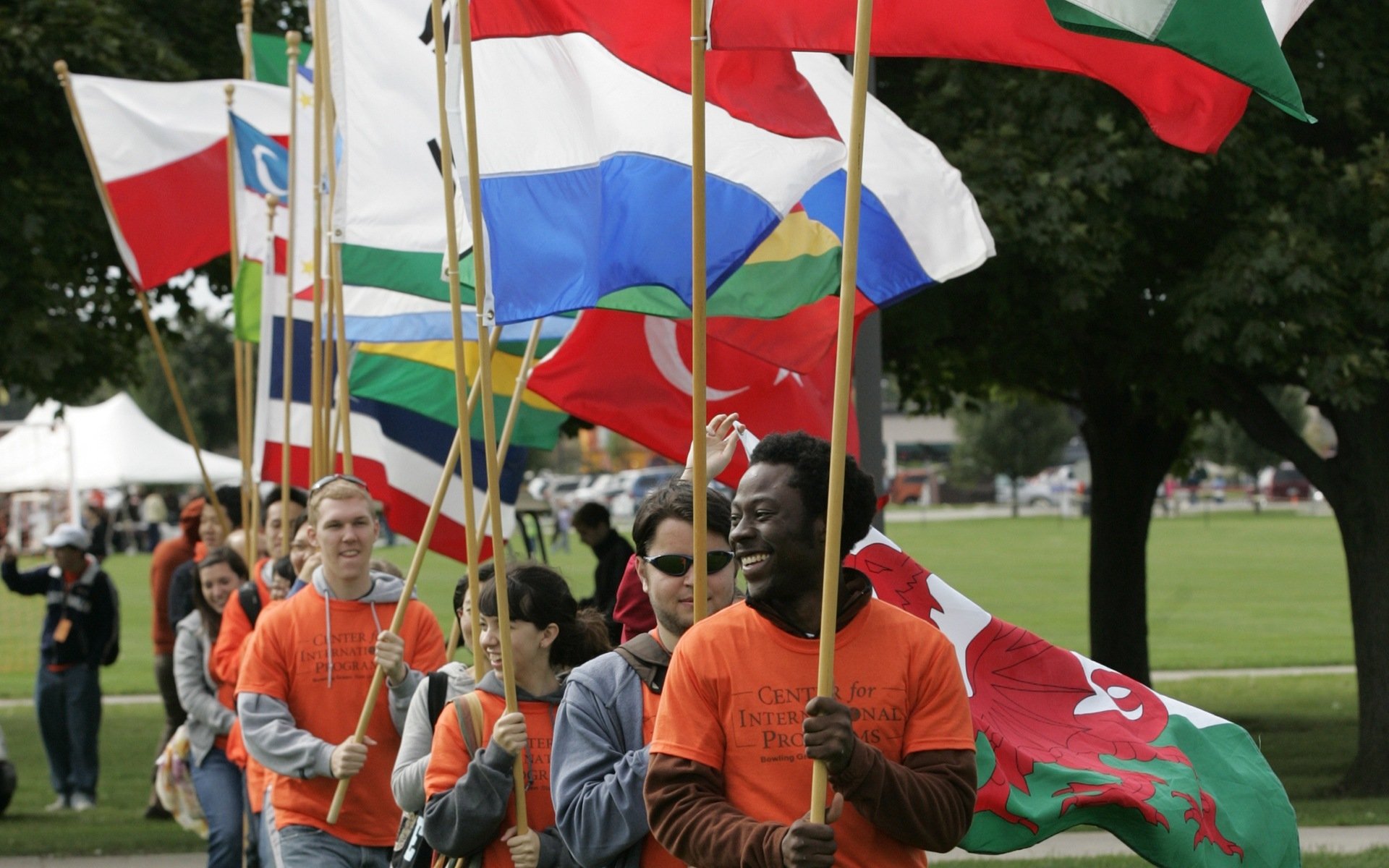
Bachelor of Science in Education (B.S.Ed.)
World Language Education
As a language teacher, you can have a direct impact on the ability of future generations to be more globally connected in the 21st century. Students who earn licensure will be able to teach in elementary (pre-K-8) or secondary (7-12) schools. World language teachers are in the highest demand compared to other educators during this worldwide teacher shortage.
Why study at BGSU in Ohio to become a world language teacher?
- Valuable field experience. Observe and teach in PreK-12 classrooms from freshman to senior year.
- Study abroad. Participate in multicultural student teaching experiences for a full academic year. Travel to Salzburg, Austria or Alcalá de Henares, on the outskirts of Madrid, Spain.
- Strong exam prep. You’ll be well prepared to pass the professional exams that allows you to become a licensed world language teacher.
- Experienced faculty. Undergraduates collaborate with faculty members, who are active researchers, and have even had their work published.
- Active student organizations. BGSU has many international and multicultural student groups. You’ll have opportunities to be a leader, make new friends and build your resume.
- World language learning communities. Learning communities are a great way to get involved on campus and grow as a student. You will live with and be supported by other students who are passionate about education or language and culture. Each community offers fun and educational activities.
Learning Communities centered on education or world languages and cultures include:
EDHD (College of Education and Human Development) Theme Community
La Communidad Learning Community
Global Village Learning Community
Career – what can you do with a world language education degree?
BGSU world language students receive valuable field experience as early as freshman year. Early classroom exposure gives you insight into the kind of teaching you want to pursue.
BGSU hosts one of the country’s largest teacher job fairs. It is sponsored by the Michael and Sara Kuhlin Hub for Career Design and Connections.
Nearly 90% of BGSU world language education graduates report they're employed, in graduate school or starting a business within six months of graduation.
Most BGSU graduates become world language teachers in the U.S., typically in the Midwest and Southeast. Some graduate and then live abroad, teaching English through the Fulbright program or other programs such as Teach for Spain. Others have continued their education, earning master’s degrees in linguistics or their world language.
Career paths
- Primary or high school world language teacher
- Teacher of English around the world
- Online teacher
- Peace Corps
Quick Facts from the Bureau of Labor Statistics
Curriculum
BGSU’s global language education program allows you to:
- Enhance your existing language skills
- Learn teaching theory
- Teach in a classroom
Undergraduates are required to:
- Specialize in one of eight languages
- Chinese
- French
- German
- Italian
- Japanese
- Latin
- Russian
- Spanish
- Spend a full academic year abroad (Bilingual students with extensive life experience abroad may appeal this requirement.)
- Take part in field and clinical teaching experiences
- Take professional education courses

Sample courses
- General and world language methods
- Assessment
- Disciplinary literacy
- Educational technology
The world language teacher shortage
Dr. Brigid Burke, coordinator of BGSU’s world education program, has published her research on why there’s a shortage of world language teachers and proposed possible solutions.
The world language education program is part of the School of Inclusive Teacher Education in the BGSU College of Education and Human Development.
Accreditation
The world language education program is accredited by the National Association of State Directors of Teacher Education and Certification.
Bowling Green State University [BGSU] is accredited by the Higher Learning Commission. BGSU has been accredited by the Higher Learning Commission since 01/01/1916. The most recent reaffirmation of accreditation was received in 2022-2023, with our next reaffirmation of accreditation scheduled for 2032-2033. Questions should be directed to the Office of Institutional Effectiveness.
Request Information
Updated: 09/09/2024 04:22PM

